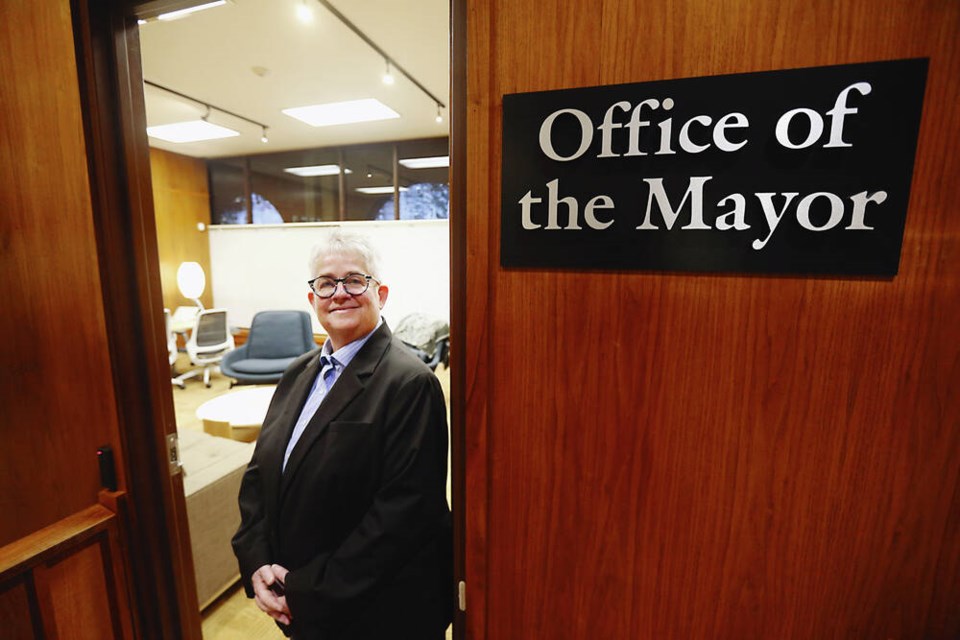Marianne Alto understands that the honeymoon she’s been enjoying as the mayor of Victoria won’t last forever — not even to the end of her first term.
But for the time being, the three-term councillor who succeeded two-term Mayor Lisa Helps in October is enjoying herself.
She said there’s been more goodwill and patience than she had expected during the first few weeks of the four-year term.
“I figured the honeymoon period would be a couple of weeks, but I think it has been a couple of months now,” she said. “I don’t want to dismiss the seriousness of [the job] by suggesting anything lighthearted, but I really have actually been having an unreasonable amount of fun.”
Alto said council was forced to deal with some serious issues out of the gate with an early cold snap and the need to get emergency shelters and warming stations up and running, but that underlined the importance of having someone in the mayor’s chair who is calm, rational and able to be thoughtful while making difficult decisions.
She also had some experience, after stepping in for Helps on occasion during the last term.
“I’ve gone into it with my eyes wide open — and it’s not the totality of who I am.”
As council start tackling the big issues on its plate — strategic planning sessions and a budgeting process that will start in mid-January — Alto is optimistic the new group around the council table will be able to work together for the good of the city.
She said in its first few weeks, council was briefed on everything from processes, procedures, policies and programs to how to make decisions.
“I think there is an understanding that a little time spent at the beginning is a good investment in the quality of decisions that come later,” she said. “You don’t want people who don’t have this type of experience to be weighing in on very complicated land-use applications that are going to have an impact on the community for decades. You want to give them a little time to sort out priorities to benefit the city broadly.”
Though it’s only three months into a four-year term, it’s clear housing is likely to dominate the agenda for a while.
Last week, council took its first step toward action on the housing crisis, asking city staff to study the implications of of a few measures they hope will translate into more housing and improved affordability in the short-term, including making it easier to add secondary suites, and allowing more suites per property.
Alto said there’s no question housing is at the top of the to-do list.
“There’s no doubt at all that we have to put as much resources and support and partnership-building as we can into creating more housing — we really have to pull every lever we can to try and create housing,” she said.
But that requires partnerships with senior government, the private sector and not-for-profit societies, Alto added.
“We don’t have the authority or responsibility for building housing or doing that whole tranche of work, but the reality is we have residents who need a place to live and so we need to do everything we possibly can to make that possible.”
As for the perception the city is not safe, Alto said council will consider all options when it comes to policing and security, including looking at police response, civilian response and everything in between.
“I know that there is anxiety around what is perceived to be a lack of safety in the downtown core,” Alto said, noting some of that is due to the fact there are so many people without housing who are dealing with complex issues and don’t have the services they need.
She said the city’s role is to engage with senior governments and agencies who can help.
“My impression is that they’re all kind of pretty much on the same page,” she said, though she conceded the work with the province will be on longer-term solutions around the kind of housing and services many of the homeless need.
“The shorter-term thing is for us to look carefully at our budget and where we can ship resources and whether we need to add them and what that means for the other decisions we have to make about how we spend the public’s money,” she said.
That discussion will start to unfold later this month and is certain to test if the honeymoon is finally over.


